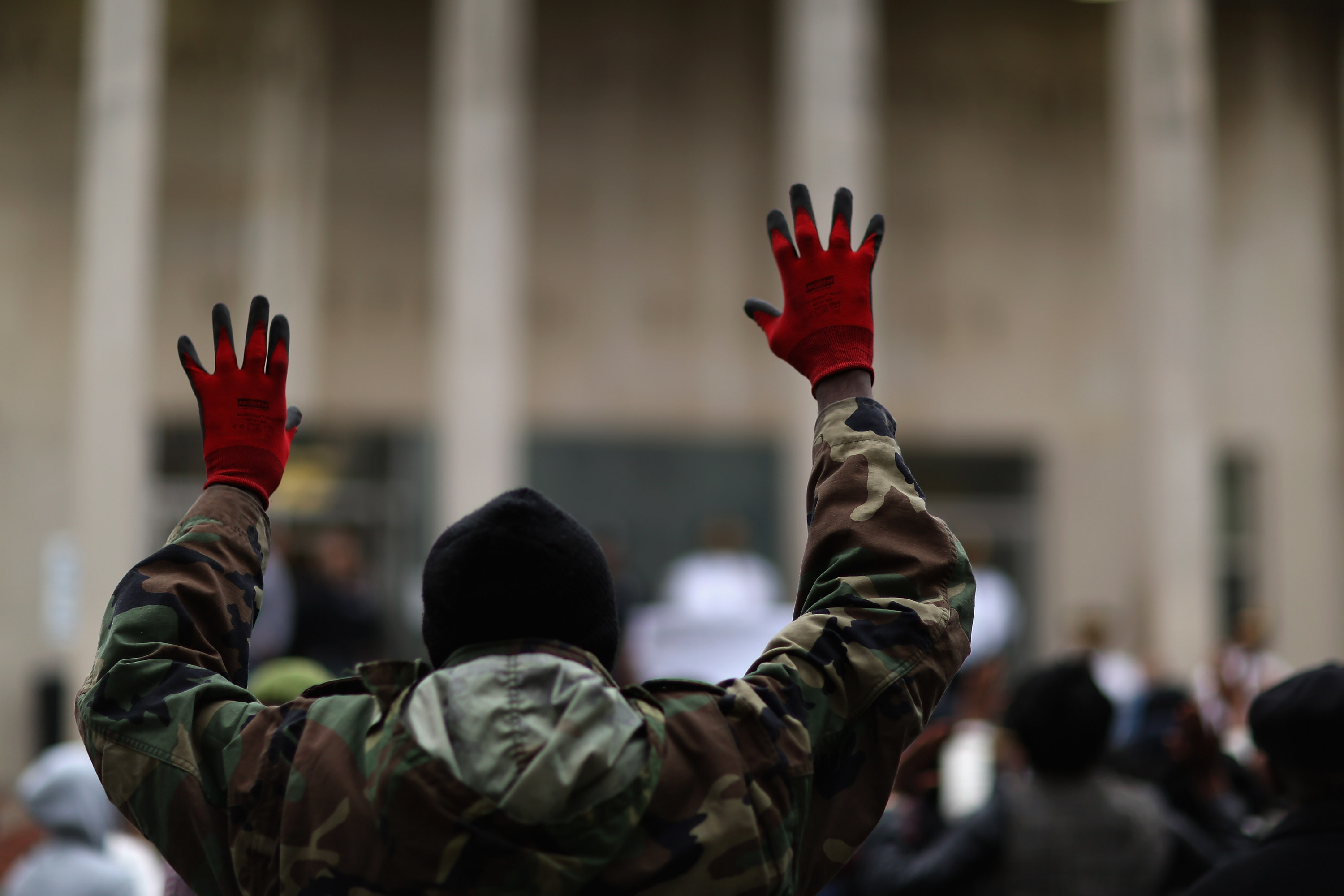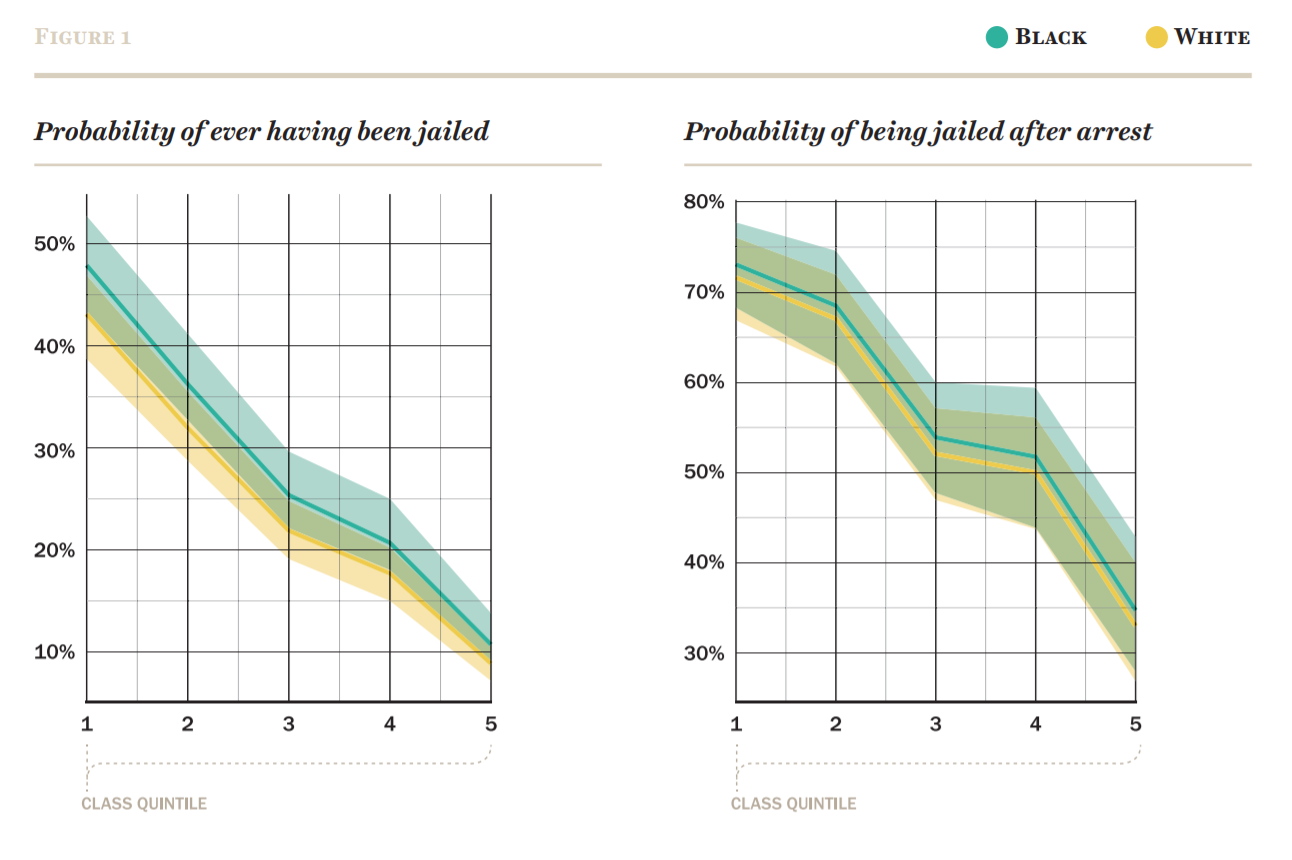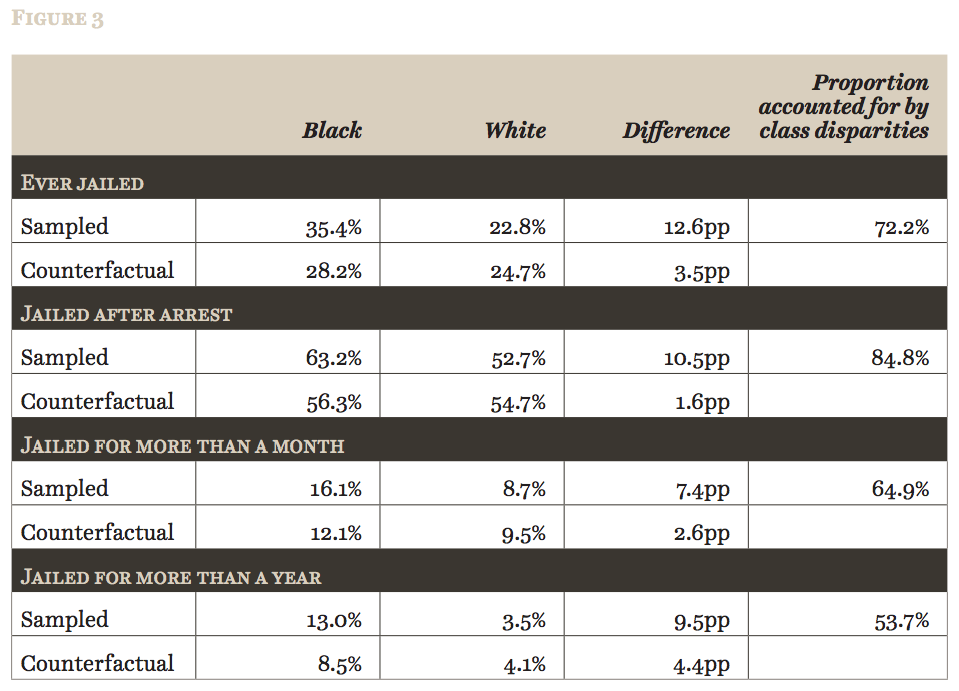How do you fight racism in the criminal justice system? With brute-force economic policy.
A new paper finds criminal justice racism works mostly by keeping black people poor


For many Americans, especially African-Americans, their country is not a democracy.
Instead, as Chris Hayes writes in his most recent book, the American government amounts to a system of colonial domination. Many police departments don't protect the citizenry from crime, but instead keep a gigantic fraction of the population under coercive supervision.
How do we end this situation? A new paper by Nathaniel Lewis from the People's Policy Project suggests one simple solution: End class inequality.
The Week
Escape your echo chamber. Get the facts behind the news, plus analysis from multiple perspectives.

Sign up for The Week's Free Newsletters
From our morning news briefing to a weekly Good News Newsletter, get the best of The Week delivered directly to your inbox.
From our morning news briefing to a weekly Good News Newsletter, get the best of The Week delivered directly to your inbox.
For the last several years, there has been a longstanding debate over the degree to which enormous racial disparities in the criminal justice system are the result of pure racism or class bias between racial groups. Black people might be victimized by the cops more because of the color of their skin, or because the cops victimize poor people more and black people are disproportionately poor (or some combination of the two).
Lewis examines this with some ingenious statistical wizardry. Rather than rely on a single proxy for class, like educational attainment (as I have covered before), he combines several class factors — educational attainment, household wealth, homeownership status, household income, and previous household income during adolescence — into a single 5-point class index. (He tests the index with several different weighting methods, but finds that it makes little difference.)
Then he applies the index to the National Longitudinal Study of Adolescent to Adult Health, which has followed a representative sample of Americans throughout their lives starting in the mid-'90s. By looking at different points in the survey, he examines the effect class has on black and white men.
Lewis discovered that race in itself makes no statistically significant difference for three out of the four criminal justice outcomes:
A free daily email with the biggest news stories of the day – and the best features from TheWeek.com

Now, a couple immediate caveats are necessary. First, there is a purely race-based difference in the likelihood of being imprisoned for over a year, and it is not small. Lowest-class blacks are about twice as likely to experience this, and it's also the worst outcome of the bunch.
Second, this result in no way diminishes the extent of racist outcomes in the criminal justice system. Instead, it demonstrates that racism is expressed to a very great degree through disproportionate impoverishment. The above charts show that poor white Americans get treated nearly as badly as poor black ones — but there are dramatically more poor black people as a share of their population, as seen in this chart:
(Courtesy People's Policy Project)
Third, it's important to note what the class index reveals about the shape of black and white class. Lewis found that each of the individual components of his index (as noted above: educational attainment, household wealth, homeownership status, household income, and previous household income during adolescence) on their own overstated the class position of blacks, and understated that of whites. When you combine the variables into the index, it turns out blacks are worse off economically than any single variable would indicate. (For example, a black household might have educational attainment consistent with a higher class position, but still have lower household wealth compared to a similar white household.)
All that said, this is extremely powerful evidence towards the thesis that egalitarian economic policy would sharply diminish oppression in the criminal justice system.
Lewis conducts a counterfactual simply leveling black men up to an equivalent class structure of whites (that is, imagining a different world that is unchanged except that black and white men are equally distributed through the class groups, with 20 percent in each one), and finds it would reduce the black-white gap in the four criminal justice outcomes by between 54 and 85 percent:

But as seen above, the level of absolute oppression in the bottom class is still enormous, for both black and white men. If we wanted to simply reduce police oppression to the greatest extent possible with economic policy, the best solution would be to just attack the existence of the bottom class altogether, wrenching down economic inequality by boosting up all of the poorest Americans regardless of race. Full employment policy would provide jobs to all who could work, a complete welfare state would provide enough income so no person was ever poor or uninsured, universal free college would make it easier for low-class people to attend, and so forth. That would be simple to implement and not require reforming hundreds of recalcitrant police departments simultaneously (though of course that should be done as well).
Finally, a word on poor white men. Lewis' paper focuses on precisely why black men are being oppressed, but he also finds that the poorest whites are being brutalized as well. Even on the chance of being imprisoned for a year (where the racial gap is largest) lowest-class whites are doing worse than the second-lowest-class blacks.
President Trump stands at the forefront of a new upsurge of white supremacist sentiment in this country, as we saw when he defended the Nazi rally at Charlottesville where one white terrorist murdered a woman with his car. Lewis' paper is a stark demonstration of just how poisoned the chalice of white supremacy is for lower-class whites. The criminal justice tyranny in this country was largely set up to corral a restive black population and cudgel them into submission every time they express outrage at being deliberately cut out of the middle class. But it turns out a huge fraction of poor white people have also been crushed by the police in the process.
Trump and the Wall Street bankers writing his economic policy will do nothing to help these people, only offering the social cyanide of imaginary ethnic superiority. If low-class whites want an escape from suffocating police injustice, they ought to join hands with Black Lives Matter and create a country that actually provides life, liberty, and the pursuit of happiness to every person.
Ryan Cooper is a national correspondent at TheWeek.com. His work has appeared in the Washington Monthly, The New Republic, and the Washington Post.
-
 A Nipah virus outbreak in India has brought back Covid-era surveillance
A Nipah virus outbreak in India has brought back Covid-era surveillanceUnder the radar The disease can spread through animals and humans
-
 Nasa’s new dark matter map
Nasa’s new dark matter mapUnder the Radar High-resolution images may help scientists understand the ‘gravitational scaffolding into which everything else falls and is built into galaxies’
-
 Is the US about to lose its measles elimination status?
Is the US about to lose its measles elimination status?Today's Big Question Cases are skyrocketing
-
 The billionaires’ wealth tax: a catastrophe for California?
The billionaires’ wealth tax: a catastrophe for California?Talking Point Peter Thiel and Larry Page preparing to change state residency
-
 Bari Weiss’ ‘60 Minutes’ scandal is about more than one report
Bari Weiss’ ‘60 Minutes’ scandal is about more than one reportIN THE SPOTLIGHT By blocking an approved segment on a controversial prison holding US deportees in El Salvador, the editor-in-chief of CBS News has become the main story
-
 Has Zohran Mamdani shown the Democrats how to win again?
Has Zohran Mamdani shown the Democrats how to win again?Today’s Big Question New York City mayoral election touted as victory for left-wing populists but moderate centrist wins elsewhere present more complex path for Democratic Party
-
 Millions turn out for anti-Trump ‘No Kings’ rallies
Millions turn out for anti-Trump ‘No Kings’ ralliesSpeed Read An estimated 7 million people participated, 2 million more than at the first ‘No Kings’ protest in June
-
 Ghislaine Maxwell: angling for a Trump pardon
Ghislaine Maxwell: angling for a Trump pardonTalking Point Convicted sex trafficker's testimony could shed new light on president's links to Jeffrey Epstein
-
 The last words and final moments of 40 presidents
The last words and final moments of 40 presidentsThe Explainer Some are eloquent quotes worthy of the holders of the highest office in the nation, and others... aren't
-
 The JFK files: the truth at last?
The JFK files: the truth at last?In The Spotlight More than 64,000 previously classified documents relating the 1963 assassination of John F. Kennedy have been released by the Trump administration
-
 'Seriously, not literally': how should the world take Donald Trump?
'Seriously, not literally': how should the world take Donald Trump?Today's big question White House rhetoric and reality look likely to become increasingly blurred
